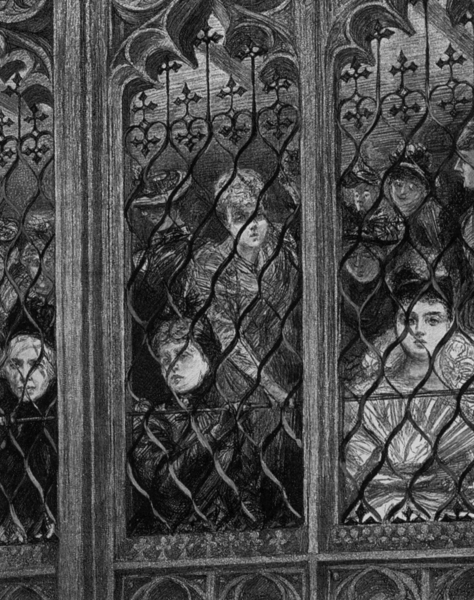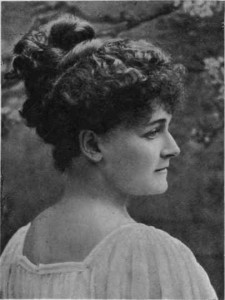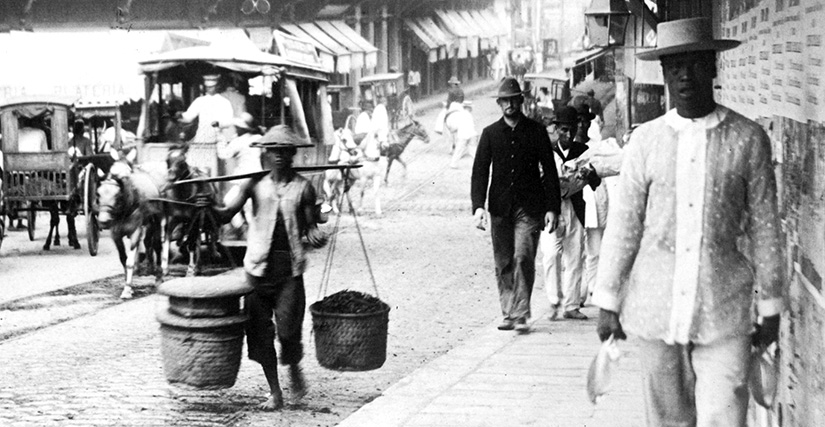The “Irish Question” dominated British politics for the majority of the nineteenth century. No other issue tore families, friends, and otherwise friendly political opponents apart than “Home Rule.” The seeds for this conflict were sown long before the nineteenth century, stretching back to the 17th century, when Oliver Cromwell, who detested detested Roman Catholicism and believed that the Irish could never be trusted, sent his New Model Army and coerce the Irish into obedience. The army laid siege to the island, the most brutal being that waged on the towns of Wexford and Drogheda, where defenders of the towns were summarily executed. Cromwell also believed the best way to bring Ireland to heel in the long term, was to ‘export’ children from Ireland to the sugar plantations in the West Indies, so that Ireland would suffer from a long term population loss, making it less of a threat to mainland Britain.
Anglo-Irish tensions were further exacerbated by the presence of the “Protestant Ascendancy,” or the “Ascendancy,” who were comprised of the Protestant English landowners who received large swaths of land from the Crown after a series of unsuccessful revolts against English rule caused much Irish land to be confiscated by the Crown. English soldiers and traders became the new ruling class, as its richer members were elevated to the Irish House of Lords and eventually controlled the Irish House of Commons. This process was facilitated and formalized in the legal system after 1691 by the passing of various Penal Laws, which discriminated against Irish Catholics and non-Anglican Protestants deemed “Dissenters.” Though the Ascendancy lost much of its overt political and social clout by the early 19th century, the “abolition of the Irish parliament was followed by economic decline in Ireland, and widespread emigration from among the ruling class to the new center of power in London, which increased the number of absentee landlords.” The Potato Famine of 1848-1852 exposed the vulnerability of Irish tenant farmers, and as a consequence, the British Parliament was moved to pass a number of acts to bolster the Irish economy. But these belated Acts did little to counteract the centuries of absentee landlord abuses, nor the history of British oppression.
The life of an Irish tenant farmers was difficult. Land prices in Ireland were high–sometimes 80-100% higher than in England–and those who leased land from an absentee landlord, rented out small parcels of land to those who paid to farm it. Each estate leased out was divided into the smallest possible parcels of land and many families who worked the land had only half-an-acre to live off. There were no rules controlling the work of those who had leased land from absentee landlords. They worked in conjunction with the Royal Irish Constabulary and it was the RIC and Army which enforced evictions if needed. There were three systems in place which forced Irish farmers into the endless cycle of debt:
Rundale: a system whereby land rented to a person or persons was scattered throughout an estate. Therefore, it was very time consuming to travel to each parcel of land. The argument given for using this system was that everyone got a chance of getting at least some good land to farm. One man in Donegal had 42 pieces of land throughout one managed estate.
Hanging Gale: a system whereby a new tenant was allowed to delay his payment of rent for 6 to 8 months from the start of renting the land. Therefore, he was permanently in debt and had no security.
Conacre: a system whereby the landlord/manager prepared the land and then the tenant moved in. The tenant was then allowed to pay part of his rent using the crops he had grown. If there was a bad harvest, then he had no crops to pay part of his rent. Therefore, he was gambling that he would get a good harvest. In 1845 to 1847, this was a disaster.
Dissent spilled over in the 1840s and 1850s with the rise of the Young Ireland party. They believed the only solution for Ireland was complete independence: Home Rule. After a failed attack on the government, Young Ireland’s most prominent leaders, James Stephens and John O’Mahony, fled for Paris. O’Mahoney later found his way to America where he stirred up the ire of Irish-Americans to create the Fenian Brotherhood. The Fenians planned a number of rebellions and uprisings, and though initially their causes garnered much sympathy, after December 1867, when several Londoners were killed when a bomb planted by the Fenians exploded at Clerkenwell Prison, there was a wave of anti-Irish feeling in London and elsewhere in England.
Prior to his taking up the cudgel for Home Rule, William Ewart Gladstone’s political career was distinguished but somewhat ordinary. In 1867, Lord Russell retired and Gladstone became a leader of the Liberal Party, shortly thereafter becoming Prime Minister where he remained in the office until 1874. According to wikipedia:
In the 1860s and 1870s, Gladstonian Liberalism was characterised by a number of policies intended to improve individual liberty and loosen political and economic restraints. First was the minimization of public expenditure on the premise that the economy and society were best helped by allowing people to spend as they saw fit. Secondly, his foreign policy aimed at promoting peace to help reduce expenditures and taxation and enhance trade. Thirdly, laws that prevented people from acting freely to improve themselves were reformed.
During Gladstone’s rise, there also arose Ireland’s most intelligent and charismatic leader, one whom many on both sides of the political spectrum could have swayed the tide of Home Rule: Charles Stewart Parnell. Born into the gentry and, surprisingly, of American stock via his mother, he rose swiftly through the ranks of politics, gaining fame during the 1870s when he refuted the claims that Fenians had been behind the murders in Manchester. His defense gained him the attention of the Irish Republican Brotherhood (IRB), a physical force Irish organisation that had staged the rebellion in 1867, and Parnell began to cultivate Fenians from America and Britain. By the 1880s, Parnell had become the face of Irish Nationalism, and so popular was he, during his tour of Toronto, an associate dubbed him the “uncrowned king of Ireland.”
By the time of Gladstone’s Second and Third Ministries, he became aligned with the pro-Home Rule movement. Gladstone, impressed by Parnell, had become personally committed to granting Irish home rule in 1885. With his famous three-hour Irish Home Rule speech Gladstone sought to convince Parliament to “pass the Irish Government Bill 1886, and grant Home Rule to Ireland in honor rather than being compelled to do so one day in humiliation.” The bill was defeated in the Commons by 30 votes. This split the Liberal (Whig) Party, and led by Lord Hartington (later the Duke of Devonshire, whose brother was murdered by Irish nationalists at Phoenix Park in 1886) and Joseph Chamberlain, the party formed a political alliance with the Conservatives in opposition to Irish Home Rule.
From then on, the “Irish Question” was fought bitterly in the House of Commons, and politicians were not afraid to resort to various deceptions such as forgeries, bribes, dissenting anonymous pamphlets, etc. One of these backdoor deals is rumored to have resulted in the sudden petition for divorce by Captain O’Shea, the husband of Parnell’s longtime love, Katherine, with whom he had three children. The divorce scandal stunted his political career, and though he remained popular, his character was tarnished. The fight for Home Rule marched on, and prior to the Great War, two more Home Rule bills were introduced in 1892 and 1914 to a crushing defeat (though the 1914 bill was interrupted by WWI and the Easter Rising). Though the issue of Home Rule was settled violently and bloodily, it cast a pall over British politics and was the first sign of a weakness in the armor that was the British Empire.
Further Reading:
Home Rule: an Irish history, 1800-2000 by Alvin Jackson
Seventy Years Young by Countess Fingall
Gladstone: A Biography by Roy Jenkins
The Laurel and the Ivy: The Story of Charles Stewart Parnell and Irish Nationalism by Robert Kee
The IRB: The Irish Republican Brotherhood, from the Land League to Sinn Fein by Owen Mcgee
Handbook of Home rule, being articles on the Irish question by James Bryce
Ireland in the Nineteenth Century
Irish Home Rule Bill





That story of Parnell sounds like something straight out of a novel.